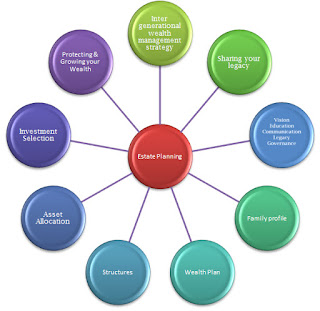Chronic inflammation increases risk of heart disease, cancer
By: Chioma Umeha
Imagine you smash your thumb with a hammer. You might shake your thumb instinctively, though that would not be helpful. This familiar swelling process is inflammation. Inflammation is the body’s attempt at self-protection; the aim being to remove harmful stimuli, including damaged cells, irritants, or pathogens – and begin the healing process.
When something harmful or irritating affects a part of our body, there is a biological response to try to remove it.The signs and symptoms of inflammation, specifically acute inflammation, show that the body is trying to heal itself. Inflammation does not mean infection, even when an infection causes inflammation. Infection is caused by a bacterium, virus or fungus, while inflammation is the body’s response to it. When you hurt yourself, you experience acute inflammation, but it is only half of the picture, an agency report said. The bad kind of inflammation is silent and you may never know you have it, even after the damage has been done. It is called chronic or low-grade inflammation, and some experts have said it plays a part in every condition – from obesity to depression and cancer.
How inflammation affects the body
“Inflammation is incredibly complex,” said Dr. Barry Sears, epidemiologist and best-selling author of “The Zone,” a book about managing inflammation through diet. Like most bodily functions, inflammation begins in the brain, when pain or irritants signal the immune system. With your immune system activated, your internal organs are flooded with immune cells. For example, in autoimmune diseases such as Crohn’s or rheumatoid arthritis, the body’s immune system attacks organs or other systems in the body and causes inflammation.
“Because the inflammation does not resolve in these conditions, it can cause damage,” said Dr. Wendy Weber, a Programme Director at the National Centre for Complementary and Alternative Medicine, part of the National Institutes of Health (NIH). For example, in Crohn’s disease, the colon is damaged, and with rheumatoid arthritis, the joints are damaged.
The hidden condition
Your body does not need intense pain to unleash the immune response that causes inflammation. The immune response can be large or small, and triggered by any number of irritants. Researchers are still discovering them. Smoking cigarettes triggers inflammation, as do certain fat cells. Commonly, Sears said, your diet can cause the kind of inflammation you do not see or feel. Over time, this low-grade inflammation interferes with the brain’s hormone signals, which is when the trouble really begins. Sears compared the brain to a cellphone: “When it does not work, it is because your signals are crossed. Inflammation causes all the signals to your brain- that tell your body what to do and how to work – to become distorted.”
Those distorted signals only make the inflammation to spread to other organs, he said, causing even more damage. This damage can signal fat cells to grow if the inflammation is there. If it is near the pancreas, it can cause diabetes. Every bodily system is affected. “If it is near the heart, it leads to heart disease, and if it spreads to the brain, it leads to Alzheimer’s,” Sears said. Similarly, depression, ADHD and obesity- as well as other conditions affected by hormones – have now been linked to inflammation. Where the problems shows up depend on the affected organ, but the underlying cause is one and the same.” Inflammation’s spread is so slow and subtle that you do not notice it until it is too late. “There is now a lot of evidence that inflammation causes several types of cancer,” Sears said, which is ironic because inflammation itself is “almost like a cancer that is metastasizing, growing within you.”
Managing inflammation
Managing inflammation can be a delicate balancing act. Because you need your immune response to keep you healthy, you don’t want to completely shut it off. You can take certain prescription drugs to control cellular inflammation, Sears said, but that is not necessary. After years of studying inflammation, he said: “The best drug is your diet.” ‘The Zone,’ he noted, is actually a physiological condition in which inflammation is controlled by the diet he recommended. Along with omega-6 fatty acids such as vegetable oil fats, insulin is a primary driver of inflammation, Sears said. Insulin levels are typically high when we consume a lot of carbohydrates, like sugar and white flour.
Conversely, omega-3 fatty acids such as fish or olive oil, along with the polyphenols found in whole fruit and vegetables, tend to lower inflammation levels. Sears recommended one-third lean protein and two-thirds fruits or vegetables at every meal with plenty of omega-3s built in. Diet may not be the only answer, added Weber, who has promising news for those who meditate. “Some research studies have demonstrated that meditation may be able to modulate inflammation,” she said. One review published in 2014 in the Journal of the American Medical Society found evidence that meditation can reduce the chemical signals involved in inflammation. Another study of 49 adults supported by the NIH suggested that eight weeks of mindfulness training reduced stress-induced inflammation better than diet, exercise and music therapy. “While the findings are promising, more research is needed to know for sure,” Weber warned.
This story was published in Newswatch Times on February 28, 2015.




Comments
Post a Comment